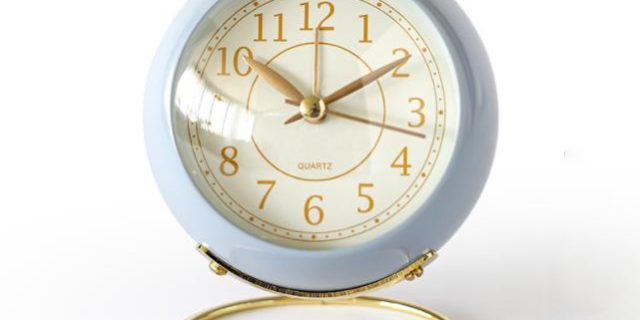Introduction: Alarm clocks play a crucial role in our daily routines, waking us up at specific times to start the day. However, the science behind alarm clocks goes beyond simple timekeeping. In this article, we delve into how alarm clocks can affect our circadian rhythms and sleep quality, exploring the importance of waking up at the right time and the potential impact of alarm clock use on our overall well-being.
- Understanding Circadian Rhythms: Our bodies have an internal biological clock known as the circadian rhythm, which regulates our sleep-wake cycle. It operates on approximately a 24-hour cycle, influenced by external factors like light exposure and daily habits. Alarm clocks can either synchronize with or disrupt these natural rhythms, depending on how they are used.
- Gradual vs. Abrupt Awakening: Traditional alarm clocks often feature abrupt and loud waking sounds, jolting us awake suddenly. However, newer alarm clock designs offer gradual awakening features, simulating a natural sunrise by increasing light and sound intensity gradually. This gentler awakening aligns with the body’s circadian rhythm and can lead to a more refreshed and alert start to the day.
- Impact on Sleep Quality: Using alarm clocks to wake up at consistent times can help regulate sleep patterns, improving overall sleep quality. However, irregular alarm clock use, especially when combined with insufficient sleep, may lead to sleep deprivation and disrupt the circadian rhythm. Consistent sleep-wake schedules are essential for promoting healthy sleep.
- Managing Alarm Clock Dependency: While alarm clocks are valuable tools for ensuring punctuality, becoming overly reliant on them can be counterproductive. Developing good sleep habits, such as setting consistent sleep schedules and creating a bedtime routine, can reduce the need for alarm clocks and improve overall sleep quality.
Conclusion: Alarm clocks are more than just devices to wake us up; they can impact our circadian rhythms and sleep quality. Understanding the importance of circadian rhythms and using alarm clocks mindfully can promote better sleep habits and overall well-being. By choosing alarm clocks that align with our natural waking process and managing alarm clock dependency, we can make the most of these timekeeping tools while maintaining healthy sleep patterns.






